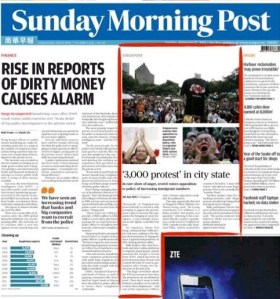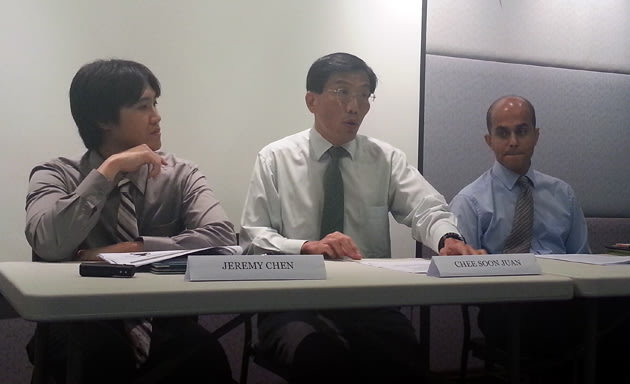This is BBC’s coverage of the protest at Hong Lim. The first part discusses the trade-off for Singaporeans and how the low TFR has led to the need for immigrants in our country. Everyone that spoke missed the point that the foreign influx is far larger than what is needed to compensate for low TFR – we had influx upwards of 100+K per year which is many times higher than the number needed to compensate for our low birth rate. But what I find interesting is the discussion on xenophobia towards the end of the programme. A foreigner, Simon Littlewood, who lived in Singapore for 20 years said:
“Well I have lived there (Singapore) for 20 years now. I think it would be unfortunate to exaggerate what is going on. Well having said that, I was the subject of a xenophobic tirade for the first time ever in Singapore a few months ago which gave me a sense of feeling (?)…wealthy foreigners are extremely visible in Singapore.
Despite Singapore’s per capita income being among the highest in the world, there is a significant percentage of Singaporean households that earn very little money and I can understand how this sense of displacement must be difficult. But the fact is the system in Singapore by the PAP is based on the notion that if you make Singapore a welcoming place for wealthy corporations and foreigners by taxing them and taking their money you can provide an environment which is beneficial for all. Unfortunately, that foreign money has led to extreme growth in cost…that hurts the society“….
For those of us who are against xenophobia, we are dismayed that it has surfaced in the past few years. Singaporeans, being the children and grandchildren of immigrants, are generally not xenophobic and we have welcome foreigners in the past when they came in at a sustainable rate. Bad policies in recent years have led to negative effects that have caused Singaporeans to be angry. Many have directed this anger at govt policies that they feel should be changed. Unfortunately, the mainstream media, the PAP and staunch PAP supporters have often pinned this term “xenophobic” on opponents of PAP policies. The latest episode is the accusation that WP’s Low Thia Kiang had incited xenophobia by speaking up against the White Paper.

But read and think about what Simon Littlewood said in the BBC interview. What has caused the rising sense of insecurity and displacement among Singaporeans? It is easy for those of us who live in financial security and in comfort to tell others to behave better and not misdirect their anger at foreigners who are just here to better their own lives and support their families back home.
I personally have not felt any threat to my job and my financial security so it is easy for me not to harbor any negative feelings, but put yourself in the shoes of Singaporeans struggling under intense competition with wages depressed by foreign workers willing to take the same job at a lower pay…and the breadwinner who lost his job due to his age to younger imported workers. We should spare some thought for those who have suffered and to label their feeling of insecurity and anger as xenophobia …and their cries for help and frustration as xenophobic is arrogant and simplistic.
For those who have implemented or supported these extreme policies that has pushed a large segment of the population to the edge to now stick ugly labels and demand acceptance is just irresponsible, insensitive and shameful.
Source: Lucky Tan
* Lucky Tan is an avid online blogger since 2005. He likes to study the thoughts of Singapore leaders and the laws of Singapore.
.
Editor’s note: Please read – UK Labour party didn’t listen on immigration
Ed Miliband, current UK Labour Party chief said, “Worrying about immigration, talking about immigration, thinking about immigration, does not make them bigots. Not in any way.”
He said this as Labour Party Chief after his party lost heavily in the UK General Election of 2010.




